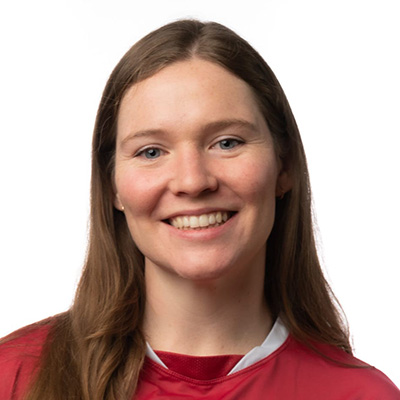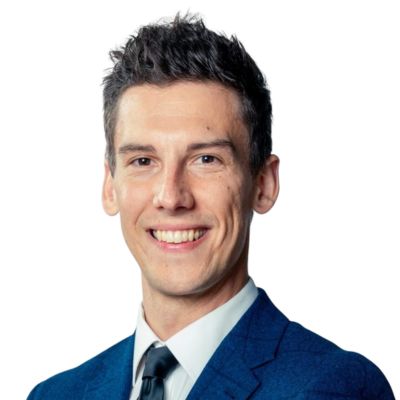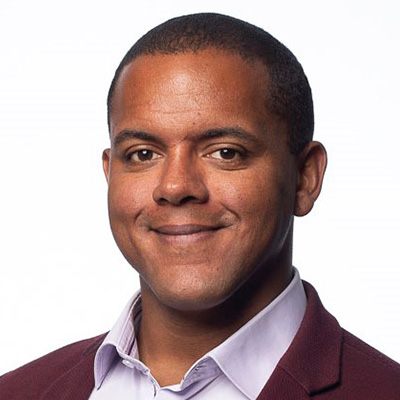How to Become a Better Team Player
Olympians and Paralympians share advice on playing well with others—even when you’d rather not

Does the idea of teamwork fill you with energy and excitement?
Or does it make you sigh, roll your eyes and feel a sinking sense of dread?
Be honest.
Teamwork does not come naturally to everyone. Introverts can find it draining. Lone wolves can find it exasperating. Productivity-minded get-’er-done types can find touchpoints and brainstorms pointless, while ego-driven alphas can find collaboration frustrating and—sometimes—a bit beneath them.
But even if the idea of teamwork makes you itchy, it’s worth acclimating yourself. Group activities and projects are a big part of most modern workplaces. Moreover, healthy, high-performance teams can encourage innovation and create more valuable and dynamic organizations. Simply put, good teams get results.
No one knows this better than the rare few who have competed on teams in the most competitive and highly scrutinized environment possible: The Olympic and Paralympic Games.
Smith Business Insight contributor Deborah Aarts spoke with four alumni of Smith School of Business—each of whom is a current or former member of Team Canada—to find out how even the most reluctant participant can become a better team player.
Push yourself out of your comfort zone

Annie Fergusson (GDB'17)
Sport: Sitting Volleyball; Paralympic Games: Rio 2016, Tokyo 2020, Paris 2024; Current roles: Doctor of Law graduate, University of Ottawa’s Faculty of Law, and current articling student
Annie Fergusson considers herself a natural team player. Whether competing at the Paralympic Games as part of Canada’s national sitting volleyball squad, or—more recently—cramming for an exam with a law school study group, she has always found comfort in the camaraderie of a crew. “I can’t think of a time when I didn’t love being part of a team,” she says.
Still, Fergusson is under no illusion that teamwork is always easy or comfortable. “It involves being vulnerable and giving up control, both of which can be a struggle,” she reflects. The most effective teams she’s been part of—including a 12-member cohort that took home bronze at the Paris 2024 Paralympic Games—have put in the hard yards of figuring out effective ways to communicate with one another, of creating environments where everyone feels safe to contribute with excellence, and of learning to sublimate individual aspirations into the collective pursuit of a shared goal. “It’s the idea of putting aside our egos to focus on helping each other,” Fergusson explains. “In sport, and in many competitive work environments, you’re always going to have people who want to focus on individual achievement. But I really do think you can get farther in a team than you can on your own.”
Annie Fergusson’s tips for reluctant team members:
- Look inward: “Ask yourself why you’re resisting being part of a team. What’s upsetting you about it? If it’s not something fundamental—like, for example, not sharing the core values of the group—it can be helpful to shift your focus away from what you dislike about the experience to why you need to work with the team and how you can do it well.”
- Start small: “Maybe you’re not ready to be vulnerable with the whole team, but if you can connect with a few people in the group it can get you to a point of feeling some safety and belonging. And that can help you start to work more effectively with others over time.”
- Open yourself: “A little bit of vulnerability, a little bit of accountability, and a little bit of willingness to put yourself out there can help a team experience go from good to great.”
Understand your goal—and your role

Andrew Haley (AMBA'24)
Sport: ParaSwimming; Paralympic Games: Barcelona 1992, Atlanta 1996, Sydney 2000, Athens 2004; Current roles: Senior Specialist, Domestic and Corporate Sales (Commercial), Via Rail Canada; Keynote and TEDx speaker
There’s no denying Andrew Haley’s success competing on his own: As a solo swimmer he set multiple world records, won four of his five Paralympic medals, earned three World Championship titles, and took home Commonwealth Games gold, among other accolades.
But for all his individual accomplishments, Haley has also come to crave the competitive firepower that teamwork can bring. In fact, some of his most memorable athletic achievements occurred in team pursuits, including the gold medal he and teammates Adam Purdy, Benoit Huot and Philippe Gagnon earned in the 4x100 medley at the Sydney 2000 Paralympic Games. “Everyone on that team took ownership of 25 per cent of what we did, and we each gave 100 per cent of our energy to our 25 per cent,” Haley says. “We’ve seen countless times through history that it’s not necessarily the most talented teams that win medals. It’s the teams where everyone has buy-in and where members leave their so-called egos at the door.”
He’s since seen that same mindset deliver results time and again, inside and out of the pool. He points to his experience completing the Smith Accelerated MBA program with a team of fellow students: While his teammates each brought diverse experiences, personalities and skills to the table, their shared commitment to reaching a collective goal rendered most differences irrelevant—while also unlocking a new gear of performance. “At the end of the day, we all wanted to get the best grade possible so there was never any second-guessing of one another’s effort,” he reflects. “We knew we were all pulling our weight and that allowed us to put our best work forward.”
Andrew Haley’s tips for reluctant team members:
- Practice humility: “A big part of being part of a team is not thinking that you’re better than your teammates, even if you have strong ideas. Strong ideas are okay. There’s naturally going to be a dominant leader of any team. But when it comes right down to competing, you’re only as strong as your weakest link. You really do have to trust the people that you’re going into battle with.”
- Accept differences: “There’s always going to be some conflict. When I was competing, my approach to training required focus inside and out of the pool: no pop, no chips, no drinking. Other athletes were happy to go wild on a Saturday night, then compete a day or two later. In situations like this I find it helps to remember that we are all working towards the same goal—even if we have very individual ways of getting there.”
- Pick your battles: “Don’t dwell on things you can’t control about other people. If you’re too focused on that, you’re going to lose perspective on what you’re doing. And if you can let things that are outside of your influence go, you’re going to do a lot better as a team.”
Build Meaningful Connections

Antoni Kindler (EMBA'25)
Sport: Field Hockey; Olympic Games: Tokyo 2020; Current role: Director of Operations, 11 Crossings Ventures Inc.
Antoni Kindler had an “aha!” moment about the true value of teamwork during a competitive low. Canada’s national field hockey team, for which he played goaltender, had lost in the Guadalajara 2011 Pan American Games and, as a result, failed to qualify for the London 2012 Olympic Games. “I felt such a sense of responsibility, like I’d let people down,” he says. But as he started talking to his teammates, he realized they all felt the exact same way. “It was so humbling and vulnerable to make that emotional connection,” he says.
Over the course of Kindler’s subsequent athletic accomplishments, business studies and current work as an entrepreneur, he’s come to appreciate the value of getting to really know teammates—not just as peers, but as people. “Building emotional ties with one another can really help move things forward,” he says. “It’s what helps you gel as a team.”
In Kindler’s view, teammates that take the time to connect with one another as humans are also better able to navigate prickly personality conflicts—a frequent bugbear in forced-proximity teamwork arrangements. Moreover, deeply connected teams are better positioned to share—and hear—unexpected ideas or alternative perspectives, which can be tricky to come by in an era of algorithmic echo chambers. “Teams give us something that is rare today: A chance to really speak to one another,” Kindler says. “We can experience differences of opinion, but we can learn from one another and we can use that to frame a better path forward together.”
Antoni Kindler’s tips for reluctant team members:
- Address any weirdness: “I’ve found one of the most effective things you can do is to acknowledge the situation early on. When you say ‘We’ve been put together, not necessarily by choice, but this is our group. How are we going to work together most effectively?’ it creates a catalyst to get beyond just sitting awkwardly with one another and hoping things get better.”
- Talk, listen and hear: “For any team to have a chance at success, each member has to be open to the opinions and experiences of the others. That takes clear and open dialogue, which isn’t always easy. Some people are very willing to share, some are a bit more quiet or sensitive. But whatever the mix on your team, there is a way to communicate effectively with one another. You just have to get to know one another to find it.”
- Share the joy: “It’s so fun to celebrate with people who are in it with you, even after a small win. I’ve done solo work, but I try to avoid it because there is just something so gratifying about hitting a goal as a collective. To me, that’s the real power of teams.”
Work to build trust

Nathaniel Miller (EMBA'19)
Sport: Water Polo; Olympic Games: Beijing 2008; Current role: Operations Manager, WP Telectronics
Nathaniel Miller is something of a paradox. He’s a self-motivated type with lone-wolf tendencies who has somehow spent most of his life drawn to group pursuits—from competing for years at the highest possible level in water polo, to his current job overseeing complex telecom construction projects with many stakeholders. “I do like it better when I’m only accountable for my own output,” he admits. “But ultimately, most of the things that I like doing require more than one person. So, I’ve had to learn to work as part of a team.”
While Miller may not be the world’s most natural collaborator, he has come to see the magic that can come from working with others towards a shared goal. Take his experience playing as a centre forward on the national water polo team that eventually competed in the Beijing 2008 Olympic Games. In the years leading up to the games, the 13-member squad did a lot of work to coalesce as a unit, getting to know one another (inside and out of the water), agreeing to shared objectives, and setting clear standards of behaviour for one another to uphold. “We were massive underdogs,” he says. “We got the performance we did because, as a group, we had a tremendous amount of trust in one another. That’s how we exceeded the sum of our parts.”
In Miller’s view, this kind of trust among teammates is a competitive advantage: It improves alignment, eliminates micromanagement and empowers people to take the kinds of risks that create remarkable results. “Trust is by far the most important ingredient in every high performing team,” he says. “And you can almost always point to trust problems in every underperforming team.”
Nathaniel Miller’s tips for reluctant team members:
- Don’t sulk: “If you’re committed to being a part of an organization, and you must be on a team to achieve the goals you’ve committed to, then there is absolutely no value to spending time and energy complaining or thinking about all the reasons why you’d rather not be there.”
- Choose kindness: “Anything you can do to lubricate the functioning of the group dynamic is in your best interest. That may include working at a different pace than you’re used to, or being more patient than you’d like. You’re going to have much more influence nudging people along if they trust you, and you can’t build trust unless you’re showing up with kindness, with care, and with compassion.”
- Relish the challenge: “If you’re a high performer in a team environment and you’re not working to be the world’s greatest teammate, then you’ve got room to grow. If you aren’t doing everything you can to help the people you rely on to get better so you can all achieve a better output, you’ve got a space to improve on.”
Smith School of Business is the official national business education partner of the Canadian Olympic Committee and Canadian Paralympic Committee, as well as a founding partner of Game Plan, Canada’s holistic athlete-support network, which helps elite athletes plan for success beyond sport. The alumni featured in this article were granted Game Plan Awards to pursue their post-secondary education at Smith School of Business.